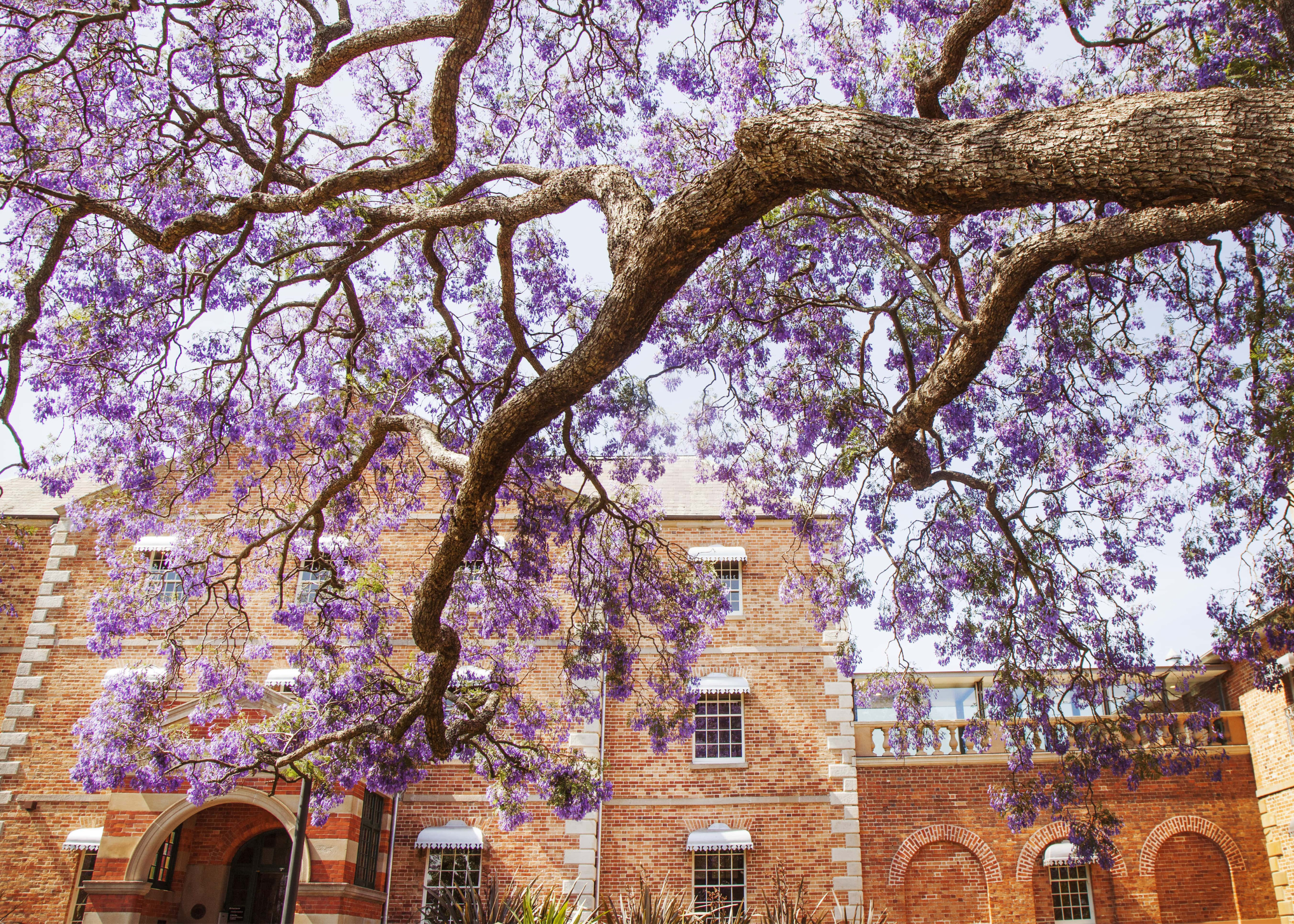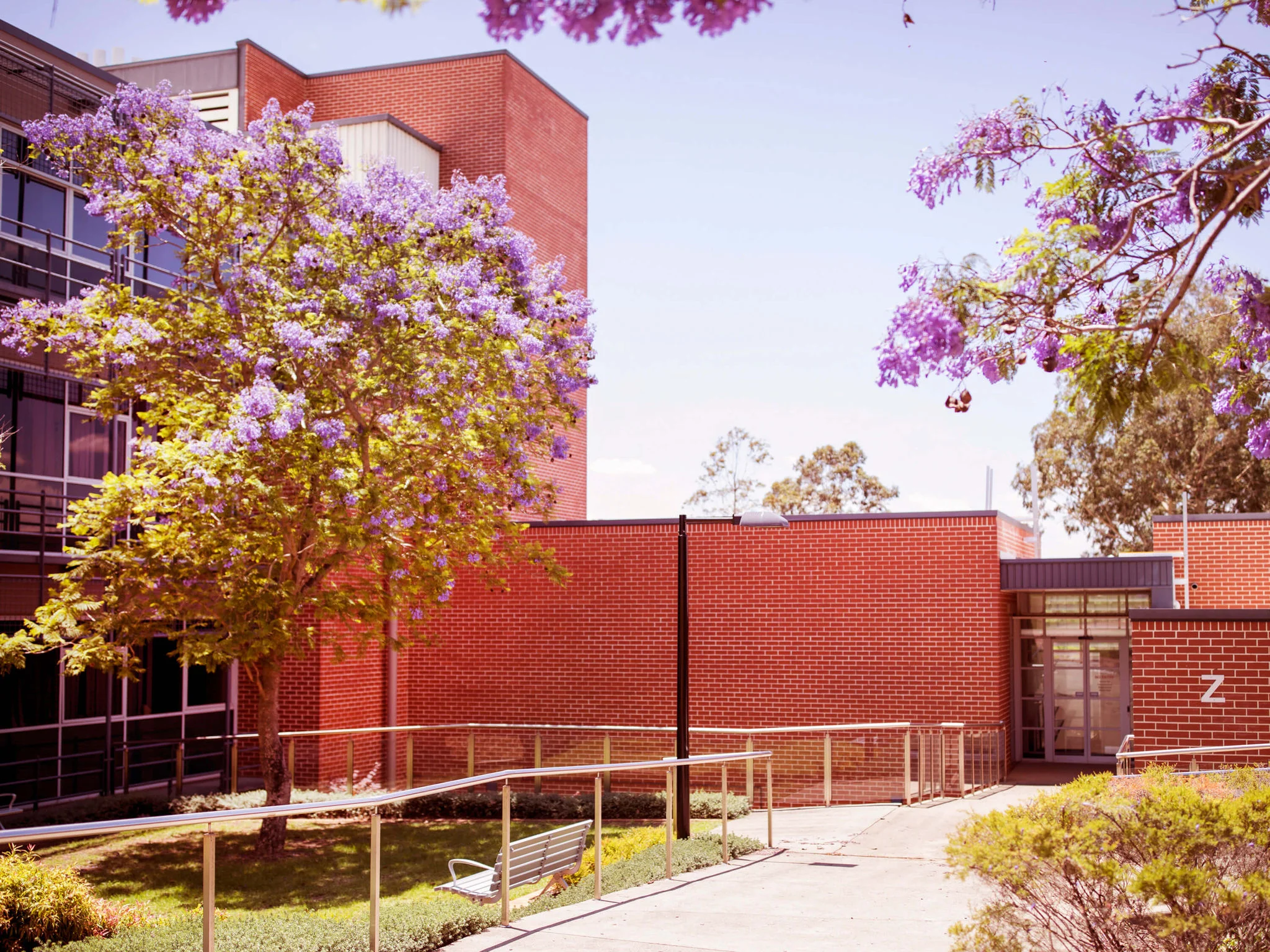This double degree allows you to tailor your studies to your specific goals by combining your Bachelor of Social Science with our accredited Bachelor of Laws degree. The program seeks to equip students with the interdisciplinary and specialist skills and knowledge that a new graduate would need on entering the workforce or on proceeding to advanced study.
Social Science and Laws at Western
What you can expect to study
The program structure is outlined in our handbook. Here you can view all of the subjects you will be studying.
You can choose from the following majors:
Social Anthropology is the study of humans and the cultures they create. The major in Anthropology within the Bachelor of Social Science offers students the opportunity to examine social patterns and practices across cultures, to discover similarities and differences between cultures, and to understand the processes by which humans organise and create meaning.
Areas of focus include the development of anthropology as a discipline; globalisation and culture; power and politics; gender and sexuality; identity and belonging; ethnography and ethnographic methods; indigenous peoples and nation states. Specific attention is given to cultures of Australasia, Southeast Asia and the Pacific, and to cross cultural interactions, at both global and local levels.
The major seeks to equip students with multi-cultural knowledge as well as to provide a thorough grounding in research methods and ethics with utility in a variety of professional and academic contexts.
The Child and Community major provides a comprehensive introduction to a range of social sciences related areas and a strong grounding in contemporary issues facing children and their families from a critical perspective.
This major provides a good foundation for people interested in a career in the human services with a particular interest in children.
This criminology major offers students the opportunity to study crime and criminal justice in a critical way that particularly stresses social and cultural definitions of criminality and the reactions to it.
Areas of focus include criminal justice institutions and practices; the development of criminology as a discipline and its various strands; forms and patterns of victimisation; crime prevention strategies and debates; aspects of juvenile justice; the evolution of prisons and different forms of punishment; law enforcement and surveillance; violence, gender and crime; cultural depictions of crime and contemporary debates in criminology.
Students in this major examine the geography of contemporary Australian cities and regions. Geography is the integrated study of people, places and environments. The cutting edge interests of today’s Geographers include post-colonialism, the emergence of global information economies, indigenous issues, class and cultural disparities, population movement, sexuality and space, and the global diffusion of popular culture.
Urban Studies is a newer discipline focused on social justice within the city, through its critical assessments of peoples’ access to scarce urban resources, such as housing, transport, education and employment. The political, economic, and cultural forces that shape cities and urban policy are the key concerns of the Urban Studies curriculum. These applied interests in urban well-being and city structure are the intellectual basis for the Urban Planning profession.
The Geography and Urban Studies major is a compulsory component of the University’s accredited Planning course.
In a highly mobile world (migration, tourism, media and communications, travel and transport) and in contemporary life where the preservation of historical and natural environments present as one of the major challenges facing all societies, heritage has become a touchstone for social and cultural identity, our understanding of modernity, peace and development, our senses of citizenship, custodianship and community. At the same time heritage places have become significant tourist destinations and so in a world of flows and networks, the heritage-tourism relationship is a critical one. In the 21st century it is impossible to disentangle the two.
This major introduces contemporary heritage issues and provides an in-depth understanding of tourism as a social phenomenon. It enables a critical examination of the relationship between heritage and tourism in number of settings within Australia (including Indigenous Australia) and internationally.
Graduates with a heritage and tourism major can contemplate careers within a diverse range of government, non-government organization and businesses that require understanding, insight and skills related to heritage and tourism.
The Peace and Development Studies major is concerned with methods for promoting peace, human rights and sustainability. It involves a critical analysis of inequalities of power and opportunity that lead to international and local conflict, social dislocation and environmental degradation.
Students will examine the structural causes of racist and gendered violence, environmental crises, forced migration, poverty, resource conflict, and inter-generational inequity. The inter-related network of solutions includes empowerment and self-determination, sustainable living, constructive development, peacemaking and peace building. These require understanding of the theories and method for identifying, measuring and resolving conflict and environmental degradation. The assumptions and failings of traditional development practice are critically assessed. Students will engage social theory within an interdisciplinary and applied framework, at local, national and international levels.
The major comprises of three fields: 1) structural inequality, social justice & human rights; 2) development and sustainability; 3) peace and humanitarian responses/actions.
The major in Sociology provides students with a thorough training in the methods, theories and select leading areas of contemporary sociology. As well as units in which methods and theories are taught, through the social science core, students enrolled in the Sociology major will have opportunities to study a number of particular themes from a sociological perspective, including inequalities, deviance, identities, gender, religion, medicine and health care, ethnicity and migration, and the family, among other possibilities.
A Bachelor of Social Science (BSS) with a major in Sociology will prepare students for both employment and a research higher degree.
Career Opportunities
As a graduate of this degree, you can look forward to a broad range of exciting career opportunities in different sectors and industries. Below are some examples of the possible careers you can pursue with this degree:
- Construction
- Design Management
- Architecture (with further study)
Entry requirements for domestic students
Applicants who have undertaken studies overseas may have to provide proof of proficiency in English. Local applicants who are applying through the Universities Admissions Centre (UAC) will find details of minimum English proficiency requirements and acceptable proof on the UAC website. Local applicants applying directly to the University should also use the information provided on the UAC website. Find out more here.
Admission
Eligibility for admission to the Bachelor of Social Science/Bachelor of Laws is based on the following requirements:
- Assumed Knowledge: any two units of HSC English
- Recommended Studies: HSC English Standard or equivalent
Special Requirements Prerequisites
Students enrolling in these subjects may need to have a National Police Certificate and consent or prohibited employment declarations as they may be conducting their placement in circumstances where they work with minors. This would be managed on an as needs basis:
- LAWS 3074 Judicial Internship
- LAWS 4017 Access to Justice Clinic
- LAWS 3077 Legal Internship
- LAWS 4012 First Nations Peoples' Access to Justice Clinic
- LAWS 3080 Street Law Clinic
- JUST 3011 Issues in the Criminal Justice System (corrective services field trip requirement) also records and identity check.
The following subjects require a visa for the relevant country and the ability to travel at specified time:
- LAWS 3024 Foundations of Chinese Law
- LAWS 3025 Law, Culture and Entrepreneurial Innovation in India
- LAWS 3078 Legal, Economic and Social Transformation in Taiwan
Please consult the handbook for more information.
Entry requirements for international students
**The Part-time option is not available to International Students on a Student Visa.
Applicants who have undertaken studies overseas may have to provide proof of proficiency in English. Local applicants who are applying through the Universities Admissions Centre (UAC) will find details of minimum English proficiency requirements and acceptable proof on the UAC website. Local applicants applying directly to the University should also use the information provided on the UAC website.
International students currently completing an Australian Year 12 in or outside Australia, an International Baccalaureate in Australia or a New Zealand National Certificate of Educational Achievement (NCEA) level 3 must apply via UAC International.
All other International applicants must apply directly to the University via the International Office.
International students applying to the University through the International Office can find details of minimum English proficiency requirements and acceptable proof on their website.
Overseas qualifications must be deemed by the Australian Education International - National Office of Overseas Skills Recognition (AEI-NOOSR) to be equivalent to Australian qualifications in order to be considered by UAC and Western Sydney University.
Admission
Eligibility for admission to the Bachelor of Social Science/Bachelor of Laws is based on the following requirements:
- Assumed Knowledge: any two units of HSC English
- Recommended Studies: HSC English Standard or equivalent
Special Requirements Prerequisites
Students enrolling in these subjects may need to have a National Police Certificate and consent or prohibited employment declarations as they may be conducting their placement in circumstances where they work with minors. This would be managed on an as needs basis:
- LAWS 3074 Judicial Internship
- LAWS 4017 Access to Justice Clinic
- LAWS 3077 Legal Internship
- LAWS 4012 First Nations Peoples' Access to Justice Clinic
- LAWS 3080 Street Law Clinic
- JUST 3011 Issues in the Criminal Justice System (corrective services field trip requirement) also records and identity check.
The following subjects require a visa for the relevant country and the ability to travel at specified time:
- LAWS 3024 Foundations of Chinese Law
- LAWS 3025 Law, Culture and Entrepreneurial Innovation in India
- LAWS 3078 Legal, Economic and Social Transformation in Taiwan
Please consult the handbook for more information.
Indicative annual fee
A Commonwealth Supported Place (CSP) is one that is subsidised by the Commonwealth and applicable only to Domestic students. This means that the Australian Government pays part of your fees towards your program, therefore reducing your program fees, and the remaining amount is paid by you, this is considered your Student Contribution.
The fee estimates provided are indicative only and subject to change. These estimates are based on the current fee structures for a normal full time study load. However, the final fees may vary depending on several factors, including the specific subjects chosen, the duration and timing of study, and annual fee adjustments (subject to Commonwealth student contribution band rates). Please note that these estimates do not include the Student Services and Amenities Fee. We encourage all prospective and current students to consult with our Student Services Hub for the most current fee information.
As a multi-campus institution, Western Sydney University and its entities reserves the right to alter the location of its programs between campuses and other locations as necessary.
To work out how much your Student Contribution will be before you study, you will first need to find out the Student Contribution band your subjects fit into based on their general discipline area.
You can then calculate your student contributions to work out the total amount of your contribution.
The Higher Education Loan Program (HELP) is a range of loans introduced by the Australian Government from 2005 to provide fee payment assistance to eligible students. Loans are for Australian citizens studying in Australia or overseas. Permanent residents who hold a humanitarian visa are also eligible if studying in Australia.
If eligible you may be able to defer all or part of your Student Contribution through the HECS-HELP loan program. You may also be eligible for OS-HELP if undertaking studies overseas.
New Zealand citizens and holders of an Australian permanent resident visa (other than an Australian permanent humanitarian visa) are generally not entitled to HECS-HELP assistance. If you are a New Zealand citizen or permanent resident your Student Contribution amount must be paid in full by the census date.
However, the Australian Government has passed new legislation that changes the way some New Zealand citizens, who hold a Special Category Visa (SCV), studying in Australia will pay their fees. More information is available on the Changes to fees for New Zealand Citizens webpage.
Apply as a Domestic Student
If you are a domestic student, you can apply through our Western Application system which is free of charge.
Domestic students are:
- Australian Citizens
- New Zealand Citizens
- Australian permanent residents
- Australian permanent humanitarian visa holders
Scholarships
Western Sydney University recognises and rewards students who demonstrate community engagement, outstanding academic ability and superior leadership skills. Donor-funded scholarships are also available, providing support for students based on both academic achievements and equity considerations. There are also scholarships available for specific degrees.
The fee estimates provided are indicative only and subject to change. These estimates are based on the current fee structures for a normal full time study load. However, the final fees may vary depending on several factors, including the specific subjects chosen, the duration and timing of study, and annual fee adjustments (subject to Commonwealth student contribution band rates). Please note that these estimates do not include the Student Services and Amenities Fee. We encourage all prospective and current students to consult with our Student Services Hub for the most current fee information.
As a multi-campus institution, Western Sydney University and its entities reserves the right to alter the location of its programs between campuses and other locations as necessary.
Apply as an International Student
If you are an international student, you can apply for free through our international student application system or through an agent representative.
International students are:
- Not an Australian citizen;
- Not a New Zealand citizen; and
- Not a permanent resident of Australia.
If you are an international student completing the Australian HSC, IB or NCEA, apply direct via UAC International.
Admission to Western Sydney University is on the basis of meeting minimum academic and English language requirements. For more information about tuition fees and other costs, visit the Fees and Costs page.
Scholarships
When you apply to Western, you’re automatically assessed for a Scholarship, no additional application required! We’re offering multi-year scholarships (for up to 3 years) valued at $6,000 or $3,000 and even 50% off tuition fees. Scholarships are awarded on academic merit.
Want to know more?
We're here to provide clarity.
If you're uncertain about your study journey, enquire about our program today and gain the confidence to move forward.
Australian students
1300 668 370
International students
+61 2 9852 5499

The fee estimates provided are indicative only and subject to change. These estimates are based on the current fee structures for a normal full time study load. However, the final fees may vary depending on several factors, including the specific subjects chosen, the duration and timing of study, and annual fee adjustments (subject to Commonwealth student contribution band rates). Please note that these estimates do not include the Student Services and Amenities Fee. We encourage all prospective and current students to consult with our Student Services Hub for the most current fee information.
As a multi-campus institution, Western Sydney University and its entities reserves the right to alter the location of its programs between campuses and other locations as necessary.





